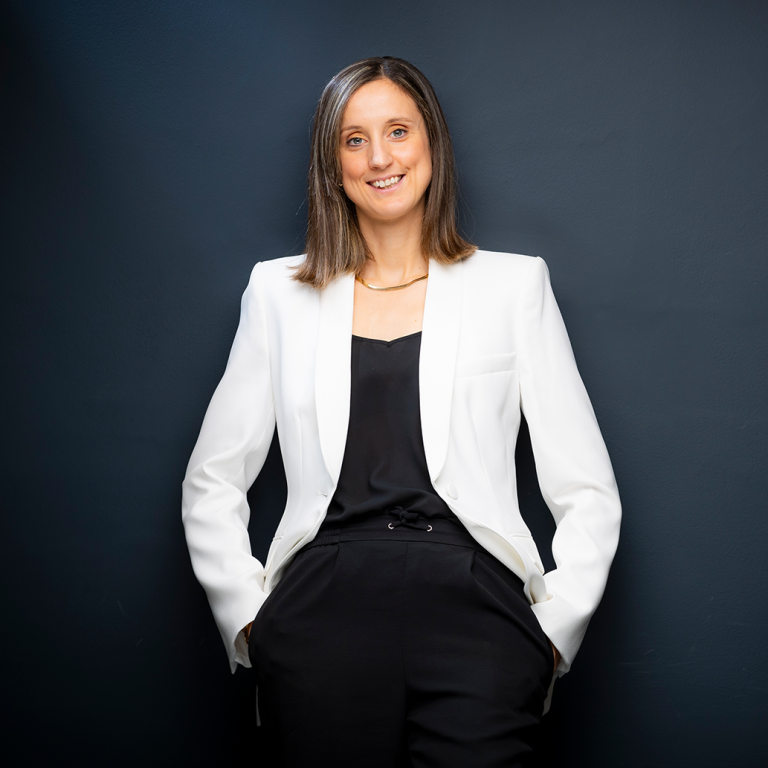MAXINE, TELL US ABOUT YOUR EARLY LIFE AND HOW YOU DISCOVERED THE PATH TO A CAREER IN HR.
I really hadn’t set my heart on university until my sister went first and that changed my mind. She loved it and that made me think I would too. Bournemouth proved to be a great choice and the business studies degree course was excellent. I still remember case studies, like the revival of Marks and Spencer and modules that encompassed legal, economics, marketing and finance that were gripping. I also had a placement year with Enterprise Rent-a-Car, still not HR-specific at that time, but it was a fantastic opportunity in terms of learning how to manage a full profit and loss account, owning business accounts and ensuring high levels of customer service. It was run like a franchise model per branch, albeit not in reality being one. We worked on everything from logistics to targets and it was that placement that started my interest in HR. I could see how people management made a difference and the link to seeing the impact great leadership within the branches had on all the Key Performance Indicators and how great HR and leadership combined can impact that change. There was something in this that made Enterprise a great place to work. There was just the right level of autonomy and manager intervention. So, in my final year, I decided to specialise in HR having also studied Psychology at college. I also worked part-time at the RNLI’s training centre, in hospitality in Poole, an incredible institution in which volunteers risk their lives for others in the most dangerous situations on the planet. After University, I set about applying for graduate posts with HR very much in mind. I had an interview with Nestle and was successful in joining its graduate programme in HR. My roles in HR there varied from working in factories and the head office, which had over 10,000 people. I’m still in contact with my first mentor from Nestle, Alison Fisher and she was and still is a great inspiration to me. So, my HR career began at Nestle in the site that manufactured Cheerios in Bromborough, where I learnt full 360 HR, including working with Unions and then moved onto the UK head office supply chain in York, followed by the confectionery arm of the business in Halifax, producing amongst other things, After Eights and Quality Street. It was fantastic experience in an incredible organisation, where they instilled being commercial in HR as being key and I developed a really progressive HR mindset. I worked closely with large centre of excellences in HR and, to this day as a generalist, I hold that relationship with HR specialists as integral to being able to develop an impactful people strategy. I’ve always relied on my team around me and that’s helped me progress quite quickly in my career, through championing the people in my team and not being afraid to hire people that are more intellectual and knowledgeable in specialised HR areas. I have quickly built credibility in businesses through working to understand the business and leveraging coaching senior execs versus telling. My time at Nestle also showed me the importance of brand – both pride in the product and the importance of the people behind the brands – and that connection is so important and is a value that I have held close throughout my career. I’ve always utilised it in connecting within engagement strategies. The brand and how you animate this for employees is crucial, whether it’s about encouraging them to celebrate it or learning more about the direction of the company. As a HR leader, having an understanding and passion for the product and the people integral to the operation is fundamental to advocacy and authenticity. Big corporations like Nestle are so important to the local economy and employment and generations of families work for them. That’s such a powerful force, but it does feel like it is diminishing in the modern global economy.
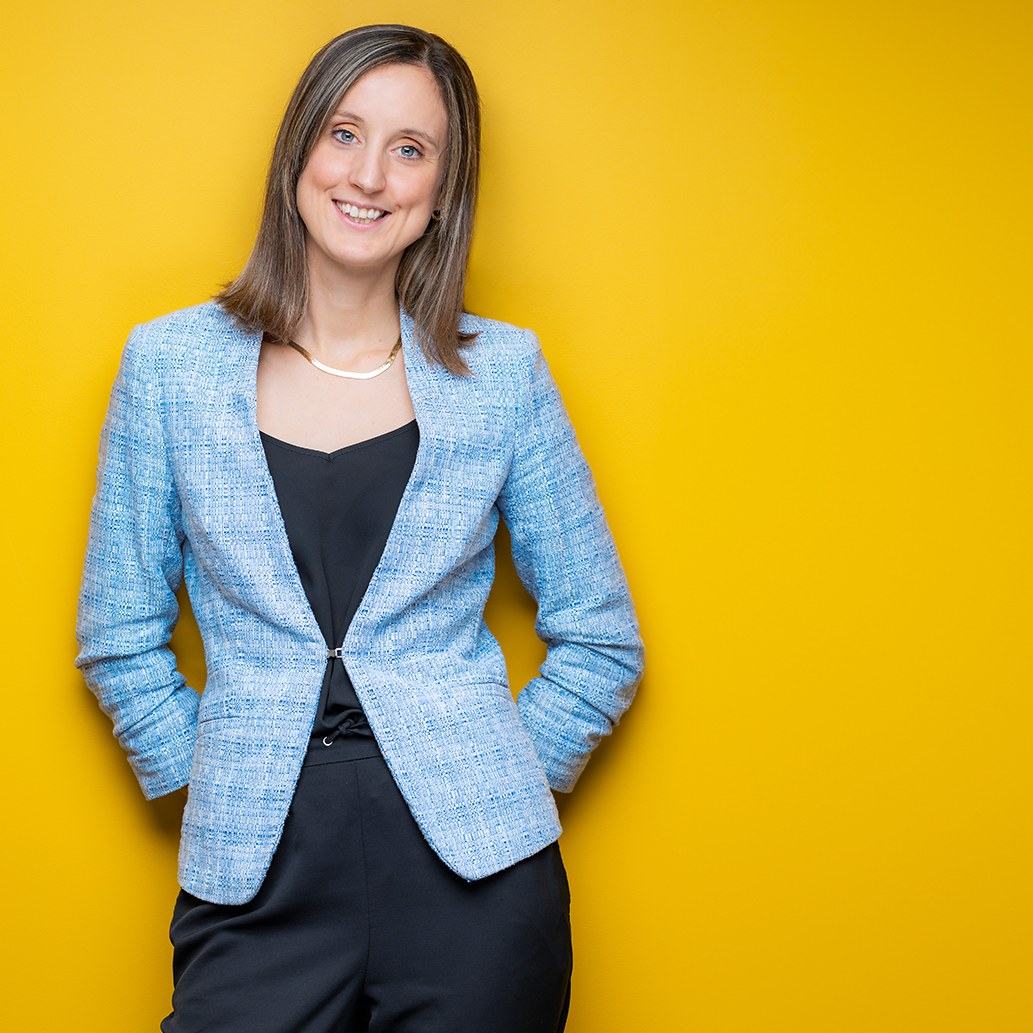
IT’S CLEAR HOW THESE EARLY EXPERIENCES AT NESTLE HAVE HELPED FORGE YOU AS A PRACTITIONER - YOU COULD HAVE STAYED WITH THE COMPANY FOR LIFE - SO TELL US WHAT YOUR CAREER MINDSET AND AMBITIONS WERE AT THIS TIME.
Mine and my partner’s families are in the South of England and so we made the decision to move closer to them. When an opportunity came along, courtesy of a headhunter, to work for Ingram Micro, the biggest global distributor of technology from a B2B perspective, I was attracted to it because they wanted to undergo a transformation and a new people direction. This sounded like a really great opportunity, as I had the chance to go in, co-create with the business and deploy. I could easily have based my entire career at Nestle but this was an opportunity too good to miss and I was excited about experiencing a different sector. The employee base was a mix of sales execs, technical software solutions experts, business development managers, business unit directors and a large distribution centre and their workforce. We worked directly with the likes of Microsoft, Apple and Hewlett Packard and I was responsible for the people strategy across the diverse mix of employees. This was where I was introduced to the engagement and performance dynamic of large commission structures. Then, within three months of joining, I became interim HR Director when the incumbent left, which was one of those “can I really do this?” moments. Nevertheless, I had champions around that supported me within the exec team and for just shy of a year I found it a great learning platform where I also managed a large merger. I now reflect on my time at Ingram as a complete lesson in a highly dynamic, massive volumes sales company, with HR taking a key role in balancing efficiency, values and customer centricity. I was tailoring HR to very different personalities who were driving towards the same goals and it was a case of, how do you reward all stakeholders, connect the organisation together and not just measure every quarter or indeed every year, but really drive the business objectives for the long-term.
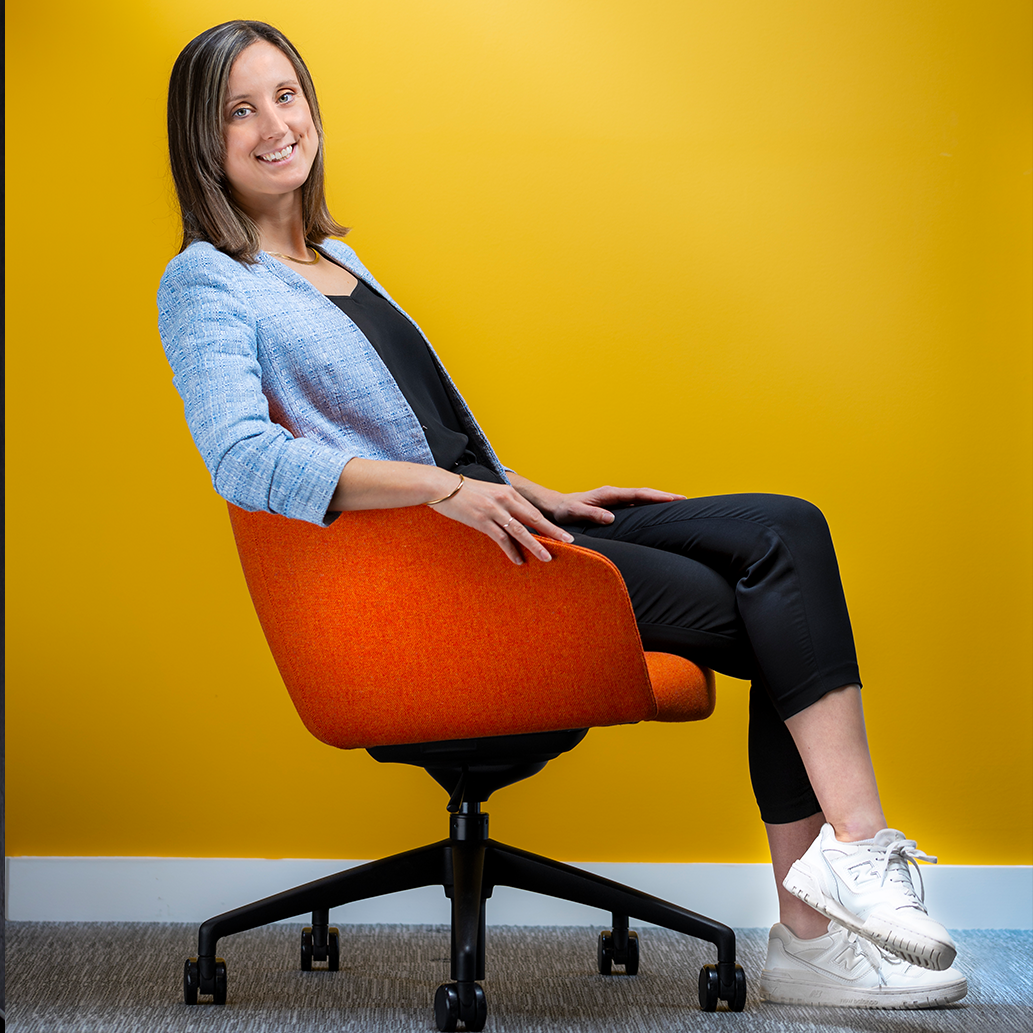
HOW DID YOU MITIGATE AGAINST THE INEVITABLE STRESS AND BURNOUT THAT COMES WITH A HIGHLY-CHARGED SALES ENVIRONMENT?
In more recent times, the whole issue of mental health and the impacts of work pressures are thankfully no longer the taboo subject they were. That was definitely the culture that we were trying to build back then, encouraging people to be open about the stress that they were feeling and equipping them with resilience, as it is normal to feel different pressure levels. We were early in introducing line manager training in awareness and care management, leading on to training across the whole organisation as a baseline of understanding and managing stress and helping managers spot the signs. A big area we focused on was “how” we lead employees and a good gauge of the progress we had made came when we carried out a big merger and acquisition. The people in the merging company were astonished by the level of mental health care we had introduced and we extended that to the incoming employees. It was pretty rare, even just a few years ago, for people to acknowledge that they were suffering from mental health issues and while everyone will inevitably have pressure in their jobs, nobody should be left to suffer without good support, understanding and help to address it. Thankfully, employers have moved the dial positively. During my interim role, the business grew considerably and then we onboarded a new HR Director to take the helm – the wonderful South African Wanda Francies – whom I learned so much from and enjoyed a great partnership with. Together, we charted the people management strategy to meet the ambitions of the business and we devised some pretty progressive initiatives, including an overhaul of the entire benefits strategy. Then one day, Wanda said in her inimitable, nononsense way: “Maxine, it’s time for you to fledge, go and experience something new and take that next step up.” I really didn’t have any chance to change my mind as an opportunity came at Volkswagen Group and, before I knew it, I was being interviewed by Audi and Volkswagen Commercial Vehicles Managing Directors and the UK HR Director Penny Weatherup. Penny is someone that truly championed me and who I still continue to see now.
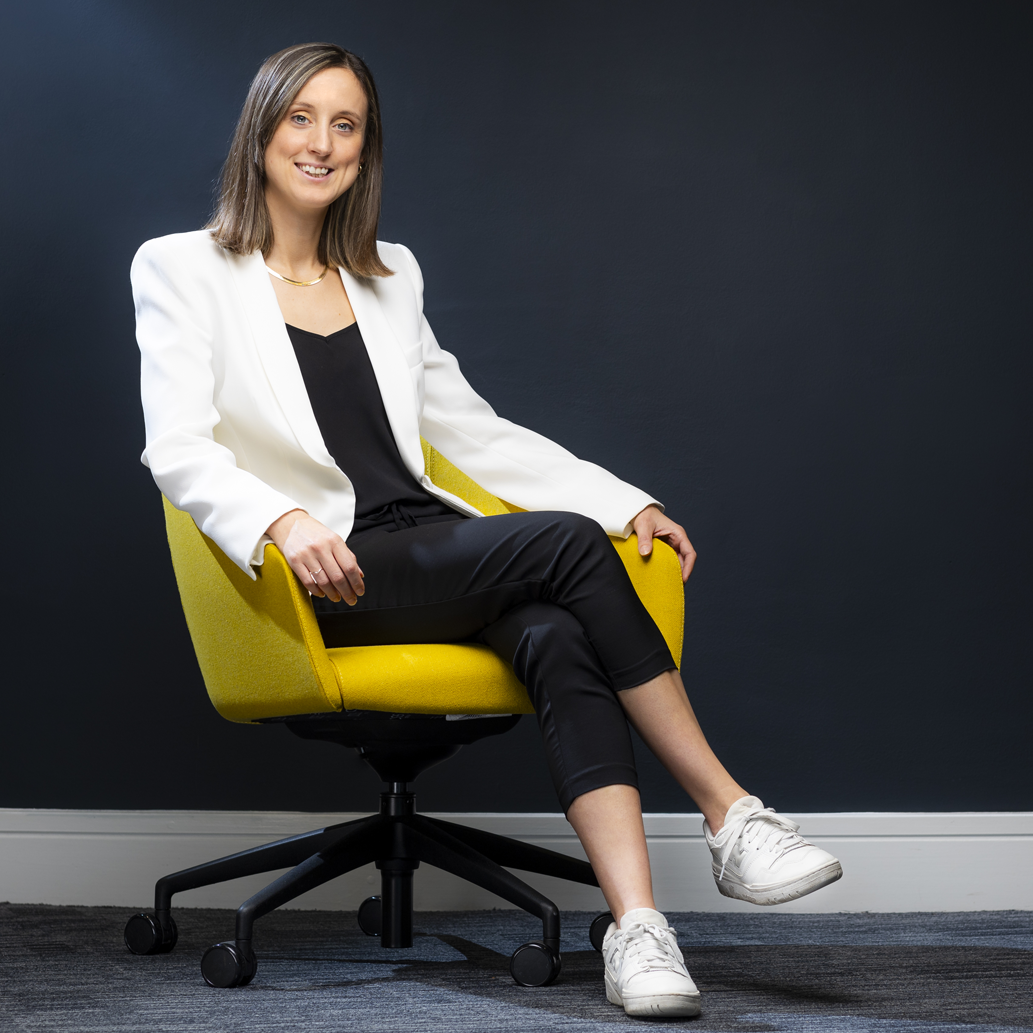
TELL US ABOUT YOUR POST AT VOLKSWAGEN GROUP AND WHAT THE BUSINESS REQUIRED FROM HR.
My role was leading HR for Audi, Commercial Vehicles and Group Commercial Services in the HR leadership team, working with Penny the HR Director who also oversaw SEAT, Skoda and other group functions. Each area of the business had its own individual identity, but we all worked hard to ensure a group-first, brand always mindset. At first, I thought having separate brand identities would cause a certain rivalry but, on the contrary, it allowed for cohesiveness through differences and developed a synergistic culture. I have always had a keen pulse on what’s going on in the business and this helped me define with the brand leadership teams, what we needed from our people and what they needed from us, for us all to be successful. The people strategy was right at the heart of the operation, championing individuality, excellence and nimbleness. From a people management and workforce operation point of view, a key move was to make sure that people could build their careers within the group, by not only going from, say, VW to Audi, but also to diversify. This enabled employees to take career opportunities outside of their experience base and at the same time enriched departments with different perspectives, helping to keep the synergy across the group. It was a truly dynamic and efficient operation and experientially very enriching, allowing me to build my own skillset. My first area of focus at Audi was to work with the Brand Director, where we transformed the leadership team and, in a year, 70 percent of the leadership team had evolved. I was then responsible for a large-scale aftersales organisational design change across the group. Then, just as we were preparing our onward strategy, COVID was announced and like every business, my focus shifted to leading furlough across the group, supporting staff and setting up the scheme. It was a massive undertaking for which there was no contingency, blueprint or guidelines. As events dictated, what was once a packed and vibrant office became empty and we were then focused on supporting people to work remotely from home. It was a fast-moving environment – and a hard lesson in crisis management – and finding contingency, equipping people with the tools they needed, training them on the tech and opening up communications and coordinating HR teams, management and leaders. We achieved a way forward though and amazingly, we continued to operate under extraordinary circumstances. As an HR team, we also carried on with our transformation agenda and one of my areas of responsibility at Volkswagen Group was to tackle and lead the DEI strategy. At the time, there was no narrative around inclusion beyond gender, because it was a sector that had been predominately male biased. So I was responsible for setting up and launching a clear DEI strategy that consisted of data collation, employee network groups, fundamental policy changes and allyship training. As a group, we signed up to the Employees Network for Equality and Inclusion and went on to achieve silver status. This was working cross-functionally with leaders and employees right across the business, with the objective to shape the strategy for the future. We looked at areas such as attraction, how we appeared as a firm internally and externally to the outside world and what we needed to do differently. We studied our diversity data in more nuanced and specific ways to see where we could improve. We ensured that every integral process within our people team was considered from a DEI perspective, looking at careers and promotions and development management programmes. Having data and metrics behind what we were doing shifted the dialogue from “nice-to-do” to “must-do”, as the results proved we were succeeding, so we aligned the work we were doing with DEI to productivity, performance and profit. That was compelling.
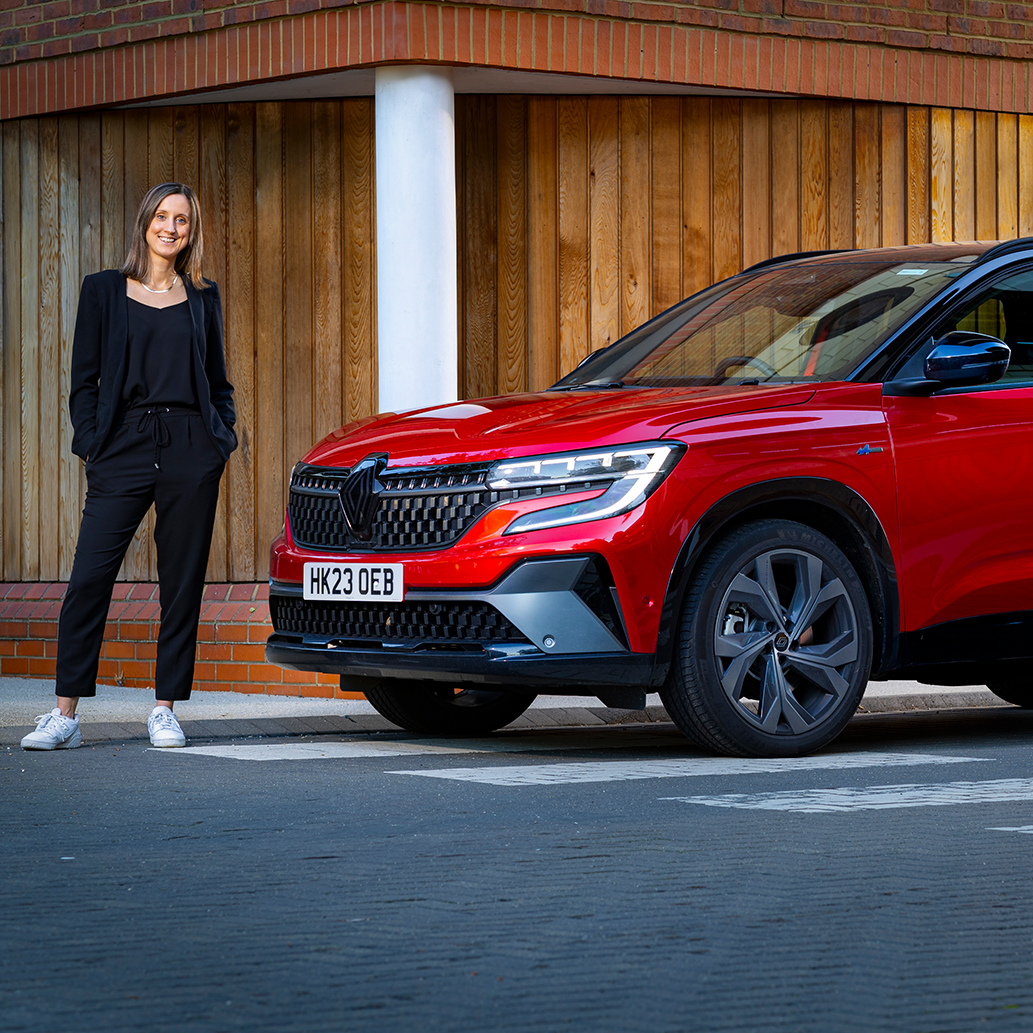
IN THE FULLNESS OF TIME, WE WILL SEE HOW THE PANDEMIC STOPPED US IN OUR TRACKS AND FORCED US TO QUESTION EVERYTHING.
I agree, although we had started our journey on the future workplace before COVID hit and it accelerated the progress. It made employees question what it was they want from their career and the organisation they work for and what the really important issues are to them going forward. We cannot underestimate the importance of the advent of hybrid and flexible working. It is revolutionary, a once in a multi-generational moment. As leadership teams today, we have a huge responsibility to evolve the world of work and that means not slipping back into old routines and mindsets and, above all, this is an opportunity to level up the playing field. At Renault Group UK now I am proud we have really balanced hybrid working, with the perfect level of connectivity. When people are in, they are not just remote working from the office, they are collaborating and connecting with their peers. They also do this virtually and it is advocated and championed by all levels too.
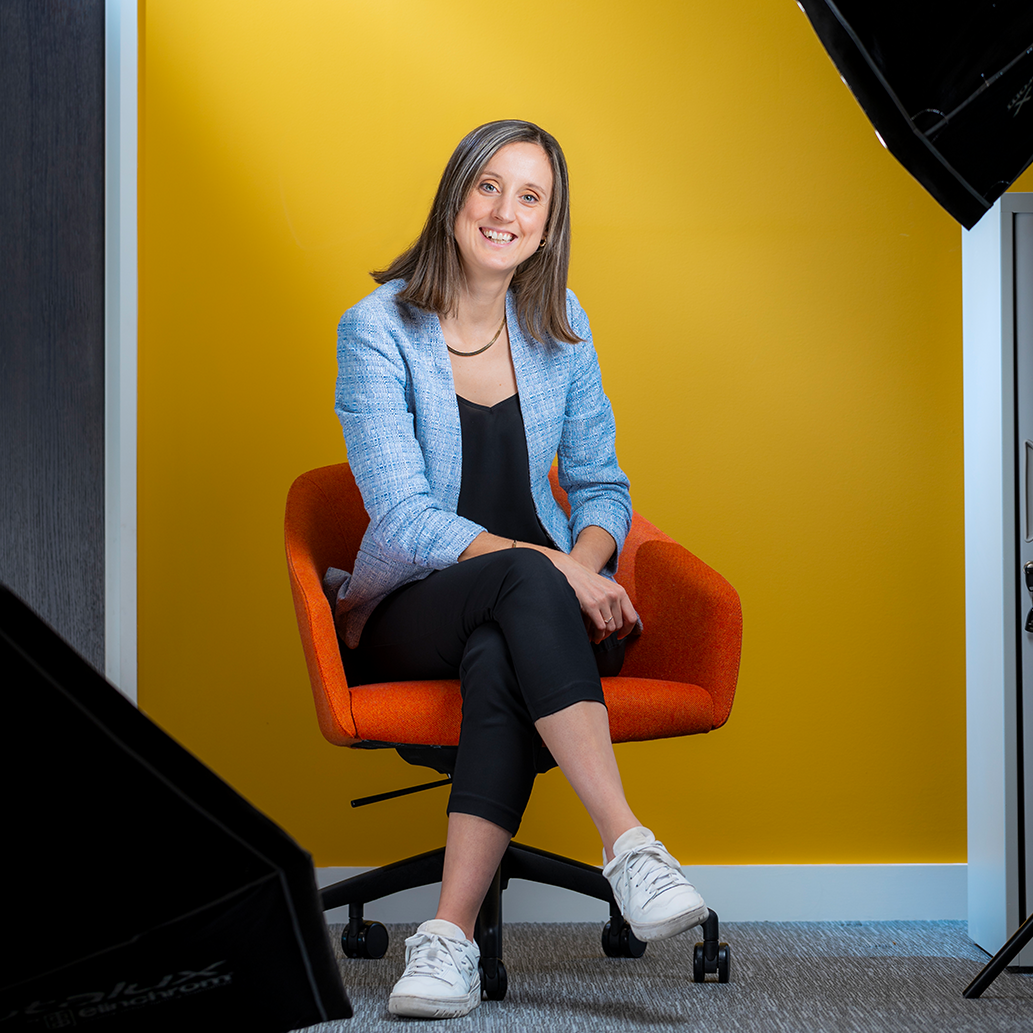
WHAT IS YOUR VISION OF THE FUTURE OF WORK?
With such a huge shift, it was obvious that there was going to be some difficulties in how businesses and employees transitioned and adjusted. The negatives in the change certainly made the headlines, with some organisations reversing decisions about flexible and remote working, but I’m convinced there are far more positives – including the rapid adoption of technology in the workplace – providing we find a sustainable balance. As we integrate with technology more effectively, rather than being suspicious of it, we will achieve much greater work/life balance. There is a responsibility to help employees adjust to the always-on technology world with awareness, guidance and the right tools. But this also then comes with employees owning this and helping themselves to switch off. I also think we will see a rapid increase of more transient workers, that are scheduled in for specific pieces of work and that really will ask some big questions about the way businesses and people engage. This is just a part of it, but although it’s a big journey and a lot of disruption, I believe the answers to hybrid working lie in trust, technology, creativity and simplification. It’s also about a mindset shift away from the parameters of conventional work, such as the notion that loyalty is about length of tenure, for example. For me, it’s performance and attitude that represent loyalty and that can come from someone who has been with a business for 20 years or is a new joiner.
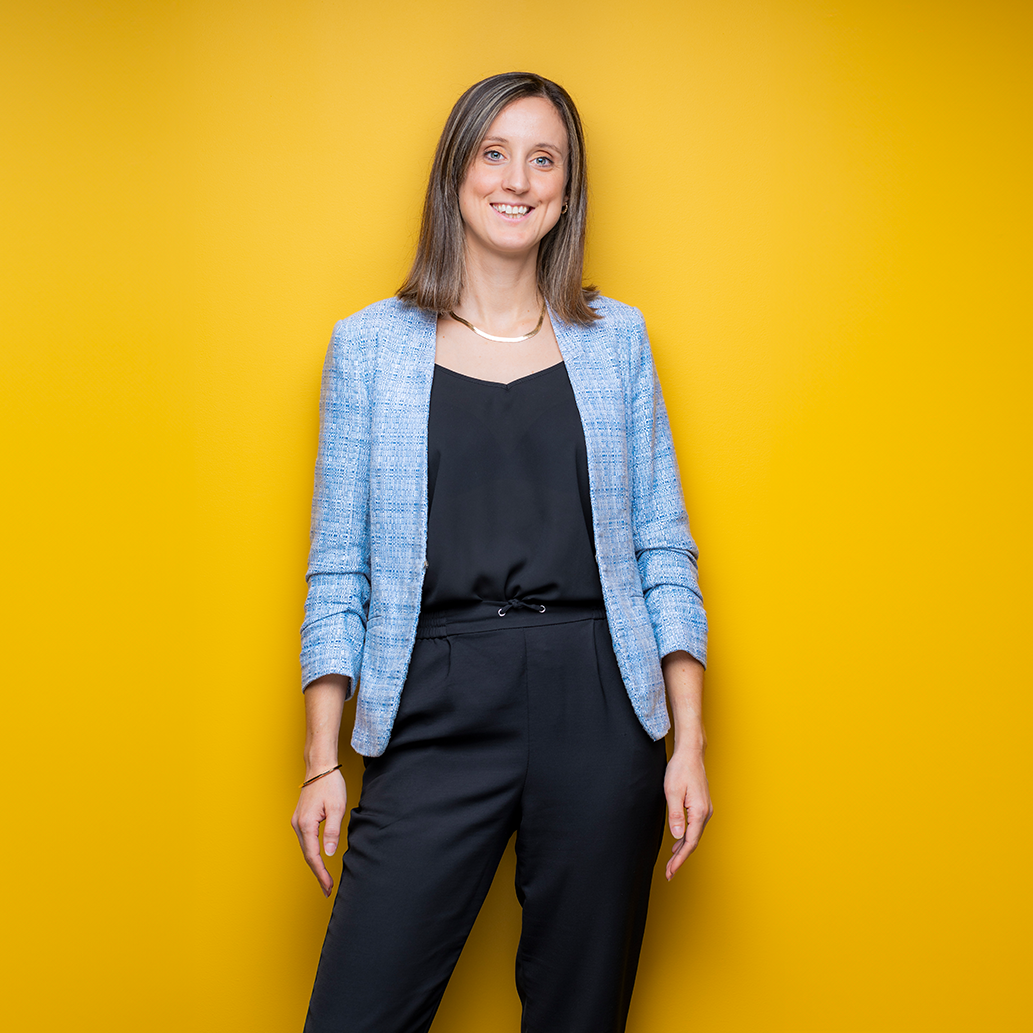
YOU HAVE NOW BEEN HR DIRECTOR AT RENAULT GROUP UK SINCE 2021 AND THERE HAS BEEN MASSIVE CHANGE IN THAT TIME.
One thing is certain, the speed and magnitude of change has never been so great. There is a real need to keep your ears open and have a 360-awareness approach to meeting the needs of employees, the business and its customers. Looking at customers first, in HR we have carried out a massive refinement in our people processes, removing non-value add offerings, policies and underutilised content, introducing a new intranet and improving the digitalisation for employees to create seamless HR experiences. Out of the pandemic, we thought life was going to be comparatively simple, only to be hit by a cost-of-living crisis on a scale not seen since the noughties. The pivotal point guiding the people strategy now is to take everything onboard from what’s around you and find the right approach. You need a healthy balance of pragmatism and courage, because not every people trend will be a natural fit for the business and its operations. A headline case in point is compressed hours, knee-jerk reacting to every shift and change is not practical or sustainable. If it doesn’t fit into your culture and fundamentally your operation then don’t follow it.
TELL US ABOUT THE CHALLENGES AND OPPORTUNITIES FOR THE AUTO SECTOR AND HOW RENAULT IS APPROACHING THE FUTURE.
We’ve been on a massive journey – as has the whole auto sector. There have been huge shifts, from new entrants into the market to the advent of the agency model that has been adopted by some, whereby they control sales rather than the car dealers. For us, our focus has been on becoming a next-generation auto and tech company and our first job was to define what that means and how you translate that vision to employees, mindful that the change is significant and requires everyone’s jobs to evolve and upskill. There is a lot going on and at pace, from evolving our digital presence to leading with our brand, having phenomenal cars that people want to buy and creating cut-through marketing in a country where we are all content and communication rich. In HR, this translates to supporting and developing teams to be more expansive and diverse in how they approach projects and this new opportunity. Operationally, we have been realigning some of the organisational structures across the teams to facilitate this change. At the same time, we are determined to maintain our commitment to diversity, equality and inclusion and a particular drive has been gender representation and I’m proud to say that we have 40 percent females across the business. This has been a collective team effort in extending our reach to out of sector talents, focusing on leadership and skill attributes, so that new employees complement our existing Renault talent. Automotive is a complex sector and we typically grow our own talent to lead the business, along with diversity-of-thought from bringing in people from other automotive companies and out of sector businesses. We are already reaping the rewards of greater diversity, which gives us an enhanced connection and empathy with our customers, which is fundamental to a customer-centric business like ours. That means there is a huge focus on developing existing employees and we have developed a strong mentoring programme, plus a trainee pipeline that is hiring for the future. We are also recruiting for potential, rather than focusing on a fixed set of skills for a specific job role, identifying and developing the people who will lead and drive the business into the future. My passion is unlocking potential and enabling and supporting people to diversify their career paths. Nobody should feel curtailed and pigeon-holed in a particular role and department. I am proud to have seen so many Renault employees progress and build their careers over the last few years. Our local activity is backed and enhanced by a phenomenal central HR team on Global initiatives and I am fortunate to have such a can do, empowering HRVP in Claire Fanget.
THE CUSTOMER EXPERIENCE AND JOURNEY IS INCREASINGLY MORE DIGITAL, WHAT’S THE PSYCHOLOGY OF WHY THEY WOULD BE INSPIRED TO CHOOSE RENAULT OVER, SAY, FORD?
It’s actually a balance, the digital journey has to be perfectly optimised, but the showroom experience – the face-to-face interactions with customers – have to be spot on too. It is also true to say that the expectations from customers for both digital and face-to-face are evolving rapidly too, so we really are on a journey on balancing the two sides and delivering what customers want. Between manufacturers, it’s a race to have the best digital experience, but nobody knows what the final solution is, or even if there is one. We are all learning all of the time, so it’s about listening and constantly absorbing and acting upon feedback. There are so many tools on the market and you have to be selective about what works, just as you do in the HR space. The electrification of cars is of course the massive opportunity in the sector and there is such a huge scope of considerations for anyone making the switch to take on board, from the readiness of the UK market for electrification and infrastructure through to whether customers understand this whole new lexicon that surrounds the industry. Then there is the behaviour changes they will have to adopt to make it work, especially around charging. The bottom line is that the cars that are coming through are beautiful and highly technical and that they have the capability to work for an increasing number of customers. Our focus is on supporting our network partners and guiding our customers along the best journey to gain the best from these cars on every level. For our employees, we are constantly looking at our training and development to ensure we bring the outside in. Our bite-sized sessions offer an array of learnings for our employees so they can continue to innovate for the end customer. We really encourage continued learning and a philosophy of questioning everything and I’m incredibly proud of our people and how they’ve really engaged with that. They are signed up to the latest news and enrich themselves with topics and self-learning at Renault has real momentum. We provide bite-size content on a myriad of topics, ranging from EVs and car market insights to leading and DEI. We encourage people across departments to work closely with our network partners, be exploratory and see what it’s like day-to-day in customer-facing situations. We want everyone to be best in their area of expertise, but also experience what peer colleagues are experiencing. That’s a powerful and compelling driver of empathy, cohesion and cooperation. It’s hugely empowering, removes blockers and champions our values and culture. We also make sure that everyone is involved in celebrating important moments, such as the launch of a new vehicle or a project that has come to fruition. It’s a ripple effect in the business that keeps things moving and dynamic and we have a town hall on a monthly basis, where everybody comes together and people are recognised for great work. Key projects are also talked about and it creates a drumbeat and a level of positivity. My belief is that no matter what your role or department, you should always be creative and be confident and empowered to give your opinion, because that is the best way to avoid stagnation and promote innovation. Doing your own job brilliantly is part of it, but you should step outside your boundaries.
HOW DO YOU THINK LEADERSHIP IN BUSINESSES IN GENERAL HAS TO ADAPT IN ORDER TO CREATE COMPANIES THAT CHAMPION GOOD VALUES, CAN HANDLE CHANGE WELL AND COMPETE FOR TALENT IN THESE DIFFICULT MARKETS?
It’s important that there isn’t one set mould of a leader or talented employee. If you employ people from diverse backgrounds and you really want to create a place that is truly innovative, then you definitely need diverse leadership. Throughout my career, my mantra has been that it’s not about being a dynamic and charismatic person delivering a keynote from behind a lectern, you need leaders that truly reflect the diversity of employees and customers and that share the same ethos and values, but can interpret and demonstrate them differently. A leadership team has to reflect a diversity of strengths. We do not want leaders that agree with each other all of the time. We need decision makers with different strengths and weaknesses that all value simplicity, accountability and excellence. To sit in a room with peer leaders and to call out groupthink requires a real honesty, but it’s essential. At present, 80 percent of the Renault Group UK leadership team have been in post under two years, which has created a phenomenal new business feel and can-do attitude. You can see that mindset rippling across the business and all of us bring a different strength and I’m fortunate to have helped create and work in a team like this. I couldn’t have done this without the advocacy, guidance and leadership of Guillaume Sicard, Managing Director, Renault Group UK. That’s where it counts having an MD shaping it and onboard.
HOW DO YOU REFLECT ON YOUR CAREER SO FAR MAXINE AND WHAT’S TO COME THIS YEAR AT RENAULT?
I feel incredibly privileged that I’m in HR and can work with the people and teams that I do, watching them learn, succeed and grow. As a qualified coach, it allows me to help people take on the challenges they didn’t think they could do, unlocking their own answers and I thrive on seeing them succeed. I have been lucky to work with so many phenomenal people that have invested time in me and I always try to pay it forward to others. I wake up reading an article on people and jot down ideas and do research in my own time and I truly believe it helps to love and care about what you do if you want to succeed in it. This year is huge for Renault Group and I cannot wait to see the comradery of all the teams as they launch more fabulous cars and continue with our UK strategy. I am working within an excellent leadership team and it is exciting to see all of them truly drive the business forward. We don’t just work together, we champion each other and our teams. As part of the journey ahead, we’ve put a lot of plans in place in terms of new org structures, new teams, new people offerings and HR activity, now it’s about really helping that come to fruition, embedding it and continuing on as a business with a strong employee value proposition, supported by the best leaders and managers in the business helping their teams transition through the changes ahead, growing and innovating all the way.
FOR FURTHER INFO WWW.RENAULT.CO.UK
